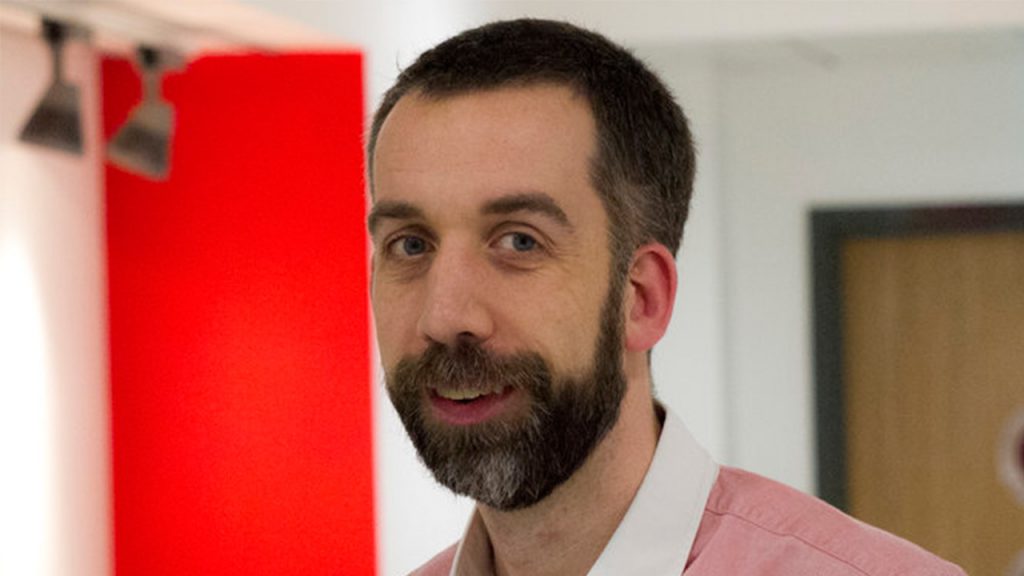New space relies on new and innovative ideas to drive forward the sector. But what is the role of academia in this new space movement? How does this relate to industry and private space ventures? And how can it support research and development in this area?
Spaceoneers spoke with Dr Malcolm Macdonald from the University of Strathclyde, whose work focuses on the development and application of space mission systems and technology. In his work he uses his industry experience to try to challenge conventional ideas to enable new concepts in the exploration and exploitation of space.
Spaceoneers: Describe a little about your work and what you do.
Dr Malcolm Macdonald: I’m the Director of the Scottish Centre of Excellence in Satellite Applications and what we do is end-to-end focus on the use to challenge conventional ideas, develop new concepts for the exploitation of space for the betterment of life. We look to see where space can add value, not just where it is traditionally used but also for new and exciting applications. This could be for an area where there is already interesting data and we use it in a different way or it could be right back up through the chain with new technology, new platforms, new payloads, so that we can then get data delivered to the user to get that economic impact ultimately.
Spaceoneers: How did your interest in this area come about?
Dr Malcolm Macdonald: That’s a difficult one. I guess I’ve always been interested in space but never in a really geeky way where I knew how many bolts where on the Starship Enterprise, or anything like that. It was something I found technically interesting. I got the opportunity when I was at university to get involved in different projects. I also gained experience through my PhD. But really evolved quite naturally rather than it being a big grand plan. Space technology is something that has held my interest. I just continued to do it and thought ‘let’s just see where it goes.’
Spaceoneers: I understand you used to work in the space industry for a company called SciSys?
Dr Malcolm Macdonald: Yes, I was there for just over three years after my postdoc. I worked on both the Aeolus and Lisa pathfinder spacecraft on the control software. I also did a number of R&D type studies. That was a nice chance to get outside of academic and some exposure to the real world (so to speak) and the traditional way of how spacecraft are built – the big 100 million Euro ESA programmes – then having the chance to go back to academia and see the different way we could do things, where new space is going in terms of cubesats etc. I could then look at risk in a different way and see how to can take on that approach into something with different levels of reliability and robustness and performance but without incurring the costs that come with that. What you find is you can often get more than 99% of performance and reliability but that last 1% is incredibly expensive. Being able to trade that off and understand that; that’s something SSTL have been doing for a long time but has really come through with lots of new companies such as Planetary Resources, Clydespace, Spire; looking at things in a different way. Working for SciSys allowed me to see why we do things the way we do it traditionally then look at what we can do to change.
Spaceoneers: You quite literally wrote the book on space technology with the ‘International Handbook of Space Technology’. You note the traditional lifecycle of space missions. How do you see technology development evolving and how does that relate to your work?
Dr Malcolm Macdonald: I think technology developments are almost a democratisation of space. When you go back to the early days, it wad really the big super powers that made space exploration possible. There were few people creating spacecraft. Now anybody can develop spacecraft. High schools can build their own cubesats. This is a fundamental change that means we can do lots of different things and it breaks down the barriers to entering the space sector. It’s a bit like the internet where it seemed very much one directional but now you have Facebook and Twitter with all the interaction that comes it. I think that’s the direction space is heading where we will have the democratisation of space; it will become much more of a two-directional thing where we can interact with the space assets and the data that has been held at institutional repositories can be much more open. That openness enables more innovation, the economic growth and that’s what we are starting to see. Coupling that with the availability of low-cost electronics and the capability they have, again means you are getting this ready access to space and it is driving down the cost as well.
Spaceoneers: And you’re involved with the UK Space Action Network? How does that tie in with your work? And how do you feed in your industry experience?
Dr Malcolm Macdonald: The UK Space Action Network is there to ensure the voice of academia can be heard. You need to feed the development pipeline, as well as the innovative ideas and technologies that are going to come out in the next 20 to 30 to 50 years. It works to ensure there is coordination in the sector and a balanced response to government consultations.
Spaceoneers: Which technologies and trends do you think will drive the biggest changes in space?
Dr Malcolm Macdonald: I would say it is all about the mass manufacture of spacecraft, heading towards mass customisation where we have the ability to mass-produce spacecraft but each one might be slightly different. And you’ve got the intelligence and autonomy within the manufacture to enable that because even though we have many spacecraft using off-the-shelf components they are all slightly different to each other. Unless you want to build a constellation where spacecraft are all the same then you actually want to have that variability; you want to have the benefits of mass production but you need to have variability between them – I think that will be really important. We are seeing the cubesat ideas are feeding into projects like OneWeb where they are looking at having multiple spacecraft where they are all pretty much the same and being able to take that to the level where each one is ever-so-slightly different due to the mass customisation but still having the economy of scale benefits is really important.
Spaceoneers: You wrote a couple of papers about reconfiguring satellite constellations and cubesats. Could you talk a little about that?
Dr Malcolm Macdonald: There we were looking at a market-driven perspective where traditionally you would have an Earth Observation constellation at every point of the Earth has the same value. That’s very true from a science perspective but not from a market perspective. The market needn’t necessarily be money. Say you had a disaster response constellation then you might want to have to over the Gulf of Mexico during the hurricane season, then you might want to move over to India for the monsoon season. So whether you can have a constellation to reacts to the needs on the ground; you might not want a constellation to cover the entire Earth but one that is agile and reactive to what is happening. That’s what I mean by market demand.
Spaceoneers: What do you find are the biggest challenges to connecting industry and academia?
Dr Malcolm Macdonald: I think to some extent the different timescales to which they like to work, is a challenge. Industry tends to have a much more rapid timescale. Projects tend to be of a shorter horizon and they burn through money quicker than in academia, whereas academics tend to like to have a 3-year project or even longer. They will be much more comfortable when they have 6-9 months for a proposal to develop an idea. Academics very much focus on their research generating journal papers and people to support them to do that. Meanwhile companies for very obvious reasons are focused on making a profit. The two of those things don’t always sit comfortably. So the challenge is how to get the two to work together for mutual benefit. It can take a little bit of time to get beyond the point where academia sees the industry partner as a “cash cow” and industry sees the academic partner as getting something for free from. Again it’s important they think of each other as working partners where you get mutual benefit.
Spaceoneers: The University of Strathclyde works closely with Clydespace?
Dr Malcolm Macdonald: We have had a long relationship with Clydespace. We have a number of knowledge transfer projects with them. They have funded a number of PhD students at the university. We share laboratories with them as well. They really understand and appreciate that by working with the university they get a different sort of thing done, they can look at a different time horizon within the company and it gives them the chance to think beyond where a traditional company will have problems.
Spaceoneers: What advice would you give to those wanting to start a space startup?
Dr Malcolm Macdonald: I guess, what we have going in Glasgow right now, is an attraction to the area from the space sector. That creates momentum and the right finance environment, as well as people. But I think the fundamental point for any start-up is having a clear idea of their product and their market, and what is it that differentiates them from the market. There are a lot of great ideas out there, in particular with space debris but I think it’s questionable as to what the actual size of market is there for space debris due to the legislative environment. So having that full understanding I think is really important in knowing you have a sufficiently big addressable market, you have the technology and capability, as well as the access to the network and skills that will allow you to scale up your company. There’s no point having a great idea but not having the ability to bring in the people to work in the company. You need to make sure all that is available to you and it’s not just about the great idea.
Spaceoneers: What makes you a “spaceoneer”?
Dr Malcolm Macdonald: I guess really the chance to do something different and create a new space sector. Scotland hasn’t traditionally had a strong commercial space activity, so the ability to something different and not be constrained by traditional methods is what interests me.
Follow Dr Malcolm Macdonald here on LinkedIn, and on Twitter @malcoluim

